Bundle up fresh garden herbs and hang them upside down in a warm, well-ventilated area to dry and keep them. As soon as they are fully dry, put them away in airtight containers out of direct sunlight.
When you dry and store fresh yard herbs, you can enjoy them for a long time after the growing season is over. If you want to get the most out of your store-bought herbs or have a yard full of them, drying and storing them the right way can make a big difference in how they taste and how well they work.
We’ll talk about the steps you need to take to dry and store fresh yard herbs properly, so you always have a supply of tasty herbs on hand for your cooking.
Understanding Fresh Garden Herbs
If you want to get the most out of your home-cooked meals, you need to know how to use fresh herbs from your yard. You can add depth and complexity to your favorite meals with these fragrant plants. If you know how to dry and store them right, you’ll always have a fresh supply. This part will talk about how important fresh herbs are in cooking and how to handle them to get the most taste and use out of them.
Importance Of Fresh Herbs In Cooking
Fresh herbs are a cooking powerhouse that can turn boring foods into colorful treats. Unlike dried herbs, they have a freshness and life that can make any meal taste better. Fresh herbs’ aromatic oils add a burst of flavor and smell to food, making the whole eating experience better. When used in the right amounts, they can make even the most basic meal into a gourmet masterpiece by giving it more depth and variety.
Drying And Storing Fresh Garden Herbs
To make fresh herbs last longer, you need to dry and store them correctly. To keep their fresh flavors, herbs must be dried carefully so that the important oils and nutrients stay in. Once they are dry, keeping them in a dark, cool place with a lid helps them stay potent for later use.
Selection And Harvesting
When choosing and gathering fresh garden herbs, it’s important to follow the right steps so that they keep their taste and smell when they’re dried and stored. If you want to keep the quality of your herbs, whether you grow them yourself or buy them at the market, you need to know how to pick and harvest them properly. We’ll talk about how to pick the right herbs and how to get the freshest herbs in this guide.
Choosing The Right Herbs
If you want to dry and store herbs, you should pick ones that are at the height of their taste. Pick herbs that are brightly colored, have strong leaves, and smell wonderful. Some well-known herbs that dry and store well are listed below:
- Basil
- Mint
- Oregano
- Thyme
- Rosemary
- Parsley
Harvesting Techniques For Maximum Freshness

It’s important to pick herbs at the right time to keep their flavors, nutrients, and vital oils. When you pick herbs to dry, make sure they stay as fresh as possible by following these steps:
- Timing: Herbs should be picked in the morning, after the dew has dried but before the sun starts to wilt the leaves in the afternoon.
- Clean Cutting: Do not tear the herb stems when you cut them. Instead, use sharp scissors or trimming shears to cut them cleanly.
- Trimming: When you cut the herbs, leave a few inches of growth at the base to help them grow back after you’re done with them.
- Leaves Only: If you can help it, don’t pick the stems. The leaves usually have the strongest tastes..
Preparing Herbs For Drying
To get fresh outdoor herbs ready to dry, the first thing you need to do is make sure they are clean, washed, and any extra water is drained. It is very important to do this so that the herbs keep their taste and quality while they dry.
Cleaning And Washing
To start getting herbs ready to dry, wash them gently to get rid of any dirt or other waste. Don’t add water yet because it could make the herbs wilt and get mushy. Instead, gently brush off any dirt that you can see on the leaves with a soft-bristled brush or cloth. Additionally, this will help the herbs stay healthy and keep them from getting too wet.
Removing Excess Moisture
It’s important to get rid of any extra water after cleaning the leaves. You can gently pat the herbs dry with a clean towel or use a salad spinner to get rid of any extra water. It is important not to let any water stay on the herbs because it can cause mold to grow while they dry. Making sure the herbs are as dry as possible will help them keep their taste and keep them from going bad.
Air Drying Methods
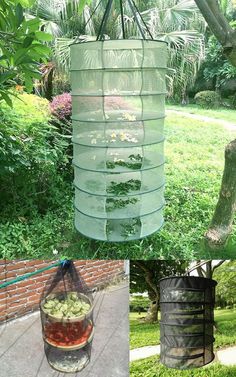
One of the easiest and oldest ways to keep fresh yard herbs for a long time is to let them dry in the air. You can enjoy the tastes and smells of your herbs long after the growing season is over if you do it this way. There are different ways to dry things in the air, such as hanging them, putting them on a rack, or using a screen.
Bundling For Hanging
A easy and effective way to hang herbs is to bundle them up after they are picked. Get small groups of herbs and use twine or rubber bands to connect the stems of the herbs. The bundles should be hung upside down in a warm, well-ventilated room that is out of direct sunlight. An example of such a room is a dry attic or a kitchen with good air flow. A lot of different herbs dry at different rates, but most are done in two to three weeks.
Make sure the herbs are completely dry before putting them away to keep them from going bad or moldy. After they have dried, take the leaves off the stems and put them in jars or containers that won’t let air in. Keep them somewhere cool and dark.
Rack Or Screen Drying
Another good way to dry herbs in the air is to use a rack or screen. Lay the herbs out in a single layer on a rack or screen that lets air flow through. Pick a place that has good air flow and not too much brightness. The herbs should be kept somewhere with good air flow for one to two weeks, or until they are completely dry. After they have dried, take the leaves off the stems and put them in jars or containers that won’t let air in. Keep them somewhere cool and dark.
Oven Drying
A quick and easy way to keep the flavors of your fresh yard herbs is to dry them in the oven. You can dry and store herbs to enjoy all year by carefully controlling the temperature and making sure the drying is even. Let’s talk about how oven drying works and how to get the best results.
Ideal Temperature And Time
A low and steady temperature is needed to dry herbs in the oven without burning them and to keep the flavor-giving essential oils. Warm the oven up to 150°F (65°C), and then turn it down to the lowest setting possible once the herbs are inside. Depending on how wet the herbs are and how thick they are, the drying process usually takes between one and four hours.
Ensuring Even Drying
It is important to spread the herbs out evenly on a baking sheet or a wire rack so that they dry evenly. Make sure there is a lot of space between the herb sprigs or leaves so that air can flow properly. Turn the baking sheet every so often to make sure it dries evenly and avoid any hot spots.
Microwave Drying
Fresh garden herbs can keep their taste and smell for a long time by drying them in the microwave. Herbs that are dried in a microwave keep their color and essential oils longer, so you can use them in your cooking without losing their taste.
Proper Techniques For Microwave Drying
Following the right steps is important for getting the best results when drying herbs in the microwave. To dry fresh yard herbs in the microwave, do these steps:
- Rinse the leaves briefly under cool water to get rid of any dirt or other particles.
- Use a clean kitchen towel or paper towels to pat the herbs dry.
- Take the leaves off the stems and throw away any that are broken or wilted..
- Place the herbs in a single layer between two paper towels. Use high power for one minute..
- Make sure the leaves aren’t too dry. If they aren’t crispy yet, keep heating them in the microwave for 15 to 30 seconds at a time until they are dry.
- Once the herbs are dry, let them cool down before putting them in a container that won’t let air in.
Safety Precautions
While drying herbs in the microwave is a handy way to keep them fresh, it’s important to be careful to avoid starting a fire. Here are some very important safety tips to remember:
- When drying herbs in the microwave, always use containers and things that can go in the microwave.
- Do not heat the greens too much, as this could cause a fire. Keep a close eye on the herbs while they dry.
- When drying herbs in the microwave, never leave it unattended. If you don’t keep an eye on it, the herbs can quickly get too hot and catch fire.
- To avoid getting burned, let the herbs cool down all the way before touching them.
Use Of Dehydrator
A dehydrator is an easy and effective way to keep the many fresh herbs from your yard for a long time. The herbs’ taste, smell, and nutritional value are kept while the gentle heat of a dehydrator dries them out. With this process, you can store herbs for a long time, so you can enjoy the taste of your homegrown herbs all year long.
Benefits Of Using A Dehydrator
Using a dehydrator to dry and store fresh herbs from the yard has a number of benefits:
- Freshness Preservation: Dehydrating flowers keeps their bright colors and strong flavors, making sure they keep their fragrant essence.
- Effective Preservation: The dehydrator speeds up the drying process so the herbs keep their quality without having to be watched all the time.
- Saves space: dried herbs don’t take up much room, so they’re easy to store in your kitchen or pantry.
- Longer Shelf Life: Herbs that are properly dried and kept can stay tasty and effective for a long time.
Proper Dehydrator Settings And Procedures
Follow these suggested dehydrator settings and steps to make sure the drying works well:
- Temperature: Set the dehydrator to a low temperature, usually between 95°F and 115°F, so the herbs don’t get burned and their vital oils stay intact.
- Spacing: Put the herbs on the dehydrating trays in a single layer and make sure there is enough airflow so they dry evenly.
- Monitoring: Check on the herbs often to make sure they don’t dry out too quickly. This can take anywhere from one to four hours, based on the type of herb and the weather.
- Checking to See if Done: Make sure the herbs are dry enough by checking them for crispness and brittleness before putting them away.
Freezing Herbs
A great way to keep the flavors of your yard all year is to freeze fresh herbs. It is possible to keep herbs tasting fresh for months by freezing them. This keeps their bright colors and vital oils. For the best results, follow these steps when freezing fresh flowers.
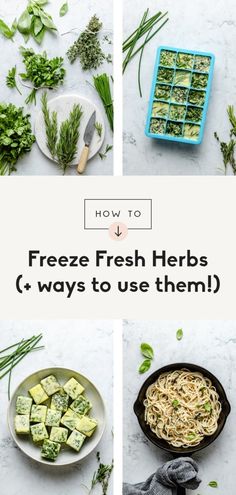
Techniques For Freezing Fresh Herbs
The process of freezing flowers is easy and can be done in a number of ways. Here are two well-known methods:
- Flash freezing: In this process, the herbs are spread out in a single layer on a baking sheet and then put in the freezer. Once the herbs are frozen, put them in a freezer bag and squeeze out as much air as you can before closing it.
- Herb-infused oil or butter cubes: In a bowl, heat the butter or oil and add the chopped herbs. Put the mix into ice cube trays and freeze them. After the cubes are frozen, put them in a freezer bag to keep them for a long time.
Best Practices For Long-term Storage
If you want to keep frozen plants for a long time, do these things:
- Write the type of herb and the date it was frozen on each freezer bag or container to keep track of how fresh it is.
- To keep the herbs’ taste and smell, put them in the back of the freezer, where the temperature stays steady.
- It’s best to use frozen greens within six to twelve months of when they were frozen.
Storing Dried Herbs
A great way to keep the flavors of your garden alive is to dry and store fresh yard herbs. It is very important to store your dried herbs in the right way so that they keep their quality and value over time. Here are some good ways to keep your dried herbs fresh.
Choosing Suitable Containers
It’s important to store dried herbs in the right containers so that they stay fresh and tasty for a long time. For storing dried herbs, glass jars with airtight lids are great because they keep the herbs fresh by keeping air and wetness out. Don’t put herbs in plastic bags or cases because they might not protect them well enough from light and air, which can make them go bad quickly.
Labeling And Organizing For Accessibility
Labeling and organizing your dried herbs correctly is important so that they are easy to find and use. On each jar, you should write the herb’s name and the date it was dried very clearly. This helps you keep track of how fresh your veggies are and makes it easy to tell them apart. To keep the herbs fresh, put the containers in a cool, dark place like a pantry or cabinet. Light and heat can make the herbs lose their taste and potency over time.
Creating Herb Infused Oils
Adding fresh yard herbs to oils is a delicious way to keep their flavors and make your food taste better. You can enjoy the flavor of your favorite herbs all year long if you use the right oils and methods. Let’s talk about the kinds of oils that can be used for infusion and the best ways to keep the taste and freshness of the oils.
Types Of Oils For Infusion
Picking the right oil is very important for getting the best taste and quality when making herb-infused oils. These are some of the best oils for infusions:
- Extra Virgin Olive Oil: This oil is great for putting strong herbs like rosemary, thyme, and oregano into food because it has a rich, fruity flavor.
- Grapeseed Oil: Since grapeseed oil doesn’t taste strong and can go up to a high smoke point, it’s great for delicate herbs like basil, cilantro, and mint.
- Avocado Oil: Because it tastes soft and feels like butter, this oil is great for infusing a lot of different herbs, from dill to chives.
Preserving Freshness And Flavor
It’s important to follow the right ways to store infused oils so that they keep the freshness and taste of the herbs. Here are some ways to keep the quality of oils with herbs in them:
- Use Clean and Dry Herbs: Make sure the herbs are fully dry and well-washed before infusing them with oil so that any moisture doesn’t hurt the oil.
- Store in Glass Bottles: The best way to store infused oils is in glass bottles, which don’t react with the herbs and help keep the taste of the oil.
- Keep Away from Heat and Light: They should be kept in a cool, dark place to keep them safe from heat and light, which can make them less effective over time.
Making Herb Butter
Make herb butter to get the most out of your yard herbs. To keep their taste, dry your fresh herbs well and store them in containers that won’t let air in. When you mix the dried herbs with butter, you get a flexible and fragrant addition to your food.
Incorporating Herbs Into Butter
Herb butter is a great way to keep your fresh yard herbs fresh and add a lot of flavor to your food. Just follow these easy steps to take your cooking to a whole new level.
Pick out your favorite herbs to use in the herb butter. Whether you use basil, rosemary, thyme, or a mix of herbs, the most important thing is to use fresh, high-quality herbs. Next, chop the herbs very small and mix them into butter that has been melted. You could also add a little salt to make it taste better.
Using a food processor to mix the herbs and butter together is another way to do it. Once the herbs are fully mixed into the butter, use parchment paper to roll it into a log shape and put it in the fridge until it is hard. You can slice this herb-infused butter into rounds or use it as a spread to make different foods taste better.
Preservation Methods And Shelf Life
There are a few things you can do to keep herb butter fresh longer. A common way is to freeze the herb butter. It can be kept in the freezer for up to a few months if it is tightly wrapped in plastic wrap and put in a container that won’t let air in. This means you can enjoy the taste of fresh greens all year long.
Putting herb butter in a can is another way to make it last longer. It is important to follow the right steps for keeping dairy-based foods when canning to make sure that the process is safe.
Herb Vinegar
Putting your fresh yard herbs in herb vinegar is a great way to keep their flavors. It not only makes your food taste better, but it also makes a great homemade gift. It’s easy to make herb vinegar, which lets you use your growing herbs all year.
Infusion Techniques
Clean and dry the fresh herbs well before adding them to the vinegar to give it a herb flavor. Finely chop the herbs to bring out their tastes, but be careful not to bruise them because it could change their color. Put the herbs in a clean, dry bottle or jar. Then, pour vinegar over the herbs so that they are completely covered. White wine vinegar, red wine vinegar, and apple cider vinegar are all common vinegars used for infusion.
Keep the jar closed and put it somewhere cool and dark for two to four weeks. Every once in a while, shake it to help the infusion process. Check the taste every so often, and when you get the strength you want, use a fine-mesh strainer or cheesecloth to get rid of the herbs.
Bottling And Sealing
Now that the herbs have been infused, it’s time to bottle and seal the vinegar. To keep the vinegar, use clean glass bottles or jars and make sure they are completely dry before you put the vinegar in them. For a nice look, you can put one or two sprigs of fresh herbs inside the bottle. When you close the bottles, make sure the caps or corks don’t let air in so the vinegar doesn’t go bad. Keep the bottles somewhere cool and dark to keep the tastes fresh.
Herb Salt And Sugar
Herb salts and sugars are great ways to keep fresh yard herbs fresh and make them taste even better. You can make seasoning mixes that can be used in a lot of different meals by mixing herbs with salt and sugar. It’s true that herb salt and sugar help your herbs last longer, but they’re also great for giving as gifts to family and friends.
Blending Herbs With Salt And Sugar
It’s best to use fresh, high-quality herbs when mixing them with salt or sugar for the best taste and smell. First, chop or grind your herbs very small to get their important oils out. Mix them with the same amount of sugar or salt, and then put the mix on a baking sheet to dry. Once the mixture of herbs, salt, or sugar is completely dry, put it in a jar that won’t let air in.
Conserving Flavor And Aroma
Adding salt or sugar to herbs not only helps them last longer, but it also makes their taste and smell stronger. The salt or sugar naturally keeps the food fresh, and it also draws out the vital oils from the herbs, making a strong and fragrant seasoning mix. With this process, you can enjoy the fresh flavors of your garden herbs all year long.
Homemade Herb Teas
Would you like to enjoy the tastes of your garden flowers all year? Making herb tea at home is a great way to enjoy the freshness of herbs you’ve grown yourself. If you dry and store your herbs the right way, you can make delicious and fragrant teas at home that are great for relaxing and recharging.
Drying Techniques For Tea Preparation
Drying is an important part of getting herbs ready for making tea at home. To make sure your herbs are ready for tea, here are three important ways to dry them:
- Air Drying: For this method, you hang plant stems upside down in a warm, well-ventilated area after tying them into small bunches. It is best to keep the herbs out of strong sunlight to keep their flavors and essential oils.
- Oven Drying: You can use your oven to speed up the drying process. On a baking sheet, spread out the herbs. Put them in the oven at a low temperature (100 to 110°F) until they are completely dry.
- Dehydrator Drying: An easy way to dry herbs while keeping their natural oils and tastes is to use a food dehydrator. Read the dehydrator’s instructions to find out what temperature and length of time are best for drying different kinds of herbs.
Storage And Brewing Tips
To keep the quality of your homemade herb teas, you need to store and make them correctly. Here are some ways to keep your drinks fresh and full of flavor:
- Storage: Put your dried flowers in containers that won’t let air in and keep them out of direct sunlight and water. This will help them keep their flavor and smell for longer.
- Brewing: Just put a teaspoon of dried herbs in a cup and pour hot water over them to make your own herb tea. Let the herbs steep for 5 to 10 minutes, then strain the tea and enjoy the delicious tastes.
Herb-flavored Honey
Herb-flavored honey is a delicious way to keep the fresh flavor of yard herbs while making an ingredient that can be used in many ways for cooking and sweetening. Infusing herbs into honey not only makes your herbs last longer, but it also gives your food a unique taste.
Infusing Honey With Herbs
It’s easy and fun to make honey that tastes like plants. If you want to pair honey with something sweet, pick fresh herbs like lavender, rosemary, or thyme that have fragrant oils. Make sure to wash and dry the herbs well to get rid of any dirt or other things that might be on them.
Then, put fresh herbs and honey in a clean, dry jar in layers, making sure the herbs are completely covered. For a few days, let the mixture sit at room temperature so that the tastes can blend. You can also slowly heat the honey to speed up the process, but be careful not to do it too much or the herbs’ delicate tastes will be lost.
Packaging And Sealing For Longevity
When the tea is ready, you can strain the herbs out or leave them in for a stronger taste. If you want to store the herb-infused honey for a long time, make sure you use a clean, airtight container so that wetness doesn’t get in and ruin the honey. Write on the jar the name of the herb and the date it was made so you can find it easily. To keep its quality and taste, keep the herb-flavored honey in a cool, dark place. Your herb-infused honey can last for several months if you properly package and seal it. It will then be ready to add a touch of natural sweetness and herbal aroma to your recipes.
Herbal Extracts
Herbal extracts are strong, concentrated forms of herbs that can be used in massage, cooking, and medicine. They are a great way to keep the smell and taste of fresh garden flowers for a long time. This part will talk about different ways to make plant extracts and how to store and keep them for long-term use.
Extract Preparation Methods
There are different ways to make herbal extracts, and each one keeps the health benefits of fresh yard herbs in a different way. The following are some common ways to extract:
- Cold Infusion: Soaking herbs in a cold liquid, like water or oil, to get their tastes and nutrients out.
- Hot Infusion: It speeds up the extraction process with heat and works best for herbs and roots that are hardy.
- Tinctures: Getting the medicinal chemicals out of herbs by using alcohol or glycerin.
- Decoctions: Simmering herbs in water to get their benefits is the best way to use tough herbs like leaves and roots.
Storage Containers And Preservation
Herbal products need to be stored correctly to keep their quality and effectiveness. Herbal extracts will last longer if you store them in the right cases and use the right methods for preservation. Here are some important things to think about:
| Container Type | Preservation Method |
| Dark Glass Bottles | Keeps the extract from being exposed to light, which keeps its effectiveness.. |
| Tight-Seal Containers | Keeps air and water from breaking down the extract. |
| Labeling | Labeling containers correctly with the date of extraction and the type of herb makes them easy to find. |
Experimental Herb Storage
When you want to keep the tastes and smells of your yard produce, there are a lot of different ways to store herbs. You can keep your herbs fresh and tasty for as long as possible by using creative ways to store them and figure out how fresh they are and how useful they are.
Unique Preservation Methods
You can make your outdoor herbs last longer by trying out different ways to keep them fresh. An interesting idea is to freeze herbs in olive oil or water in ice cube trays. To make them, just finely chop the herbs, put them in an ice cube tray, add water or oil, and freeze. Once the herb cubes are frozen, put them in a freezer bag that can be closed again and name them so they are easy to find. You can easily add a pop of fresh flavor to your dishes all year long with this way.
Assessing Freshness And Usability
If you want your herbs to keep their quality, you need to check how fresh they are and how they can be used. To tell if the herbs are fresh, look at them and see if they have bright colors and hard, crisp leaves. You can also gently crush a small bit of the herb to check its smell. If it smells good, the herb is probably still fresh. To figure out if the herbs are usable, look at their color and structure. If they look faded or changed color, you might not be able to use them in cooking.
Rejuvenating Dried Herbs
Herbs that have just been picked can be dried and saved for later use. It’s easy to use dried herbs, but they can lose their taste and smell over time. Of course, there are ways to bring dried herbs back to life and make sure they stay fresh for a longer time.
Techniques For Restoring Flavor And Aroma
There are a few different ways to bring back the taste of dried herbs that have started to lose it. One way to get the essential oils out of dried herbs is to crush them gently. Soaking the herbs in warm water before using them is another good way to get them to work again. This might help bring back some of the taste and smell that was lost. Herbs can also be brought back to life by letting them soak in oil or vinegar. This makes infused oils and vinegars that can be used in cooking or as salad dressings.
Quality Checks For Shelf Life
To keep dried herbs fresh and tasty, it’s important to keep an eye on their quality and how long they last. One way to tell if dried herbs are good is to look at them and see if there are any spots, mold, or signs of water. You can also tell how strong the herbs are by tasting them. If they don’t have a strong smell, it might be time to revive them. A taste test to see how strong the herb’s flavor is is another way to make sure it’s good.
Since the herbs no longer taste strong, it’s clear that they need to be refreshed or replaced. Dried herbs will last longer if you keep them in airtight cases out of direct sunlight and away from moisture, which can make them go bad faster.
Using Dried Herbs Effectively
When cooking, dried herbs are easier to use and last longer than fresh herbs. If you know how to use dried herbs right, you can make your food taste better and get the benefits of growing herbs all year long. To get the most out of dried herbs, though, you should know how to use them in cooking and how to keep their nutritional value.
Appropriate Culinary Applications
It’s important to think about how strong the dried herbs are and how they will go with different foods when you use them. It is important to match the herb’s strength to the dish. Stronger herbs, like oregano, thyme, and rosemary, work best in hearty stews and marinades. On the other hand, parsley, chives, and cilantro, which are milder, work better in light meals like soups and salads.
Maintaining Nutritional Value
It’s important to store dried herbs the right way so that they keep their nutritional value. To keep dried herbs fresh longer and keep their taste and nutrients, keep them in airtight containers in a cool, dark place. When cooking with dried herbs, keep in mind that they can handle longer cooking times than fresh herbs. This lets the taste of the herbs slowly seep into the food.
Frequently Asked Questions Of How To Dry And Store Fresh Garden Herbs
How Can I Dry Garden Herbs At Home?
To dry herbs from your yard at home, bundle them up and hang them upside down in a dry, well-ventilated space. Of course, it takes about one to two weeks for the herbs to dry out fully.
What Is The Best Way To Store Dried Herbs?
Dried flowers should be kept in a container that keeps air out and out of direct sunlight and water. Write the name of the herb and the date it was dried on the packages so they are easy to find.
Can I Freeze Fresh Garden Herbs For Later Use?
You can freeze fresh herbs from the yard to use later. Toss the herbs in oil, then chop them up. Put them in a container that won’t let air in or freezer bags, and then freeze them.
Conclusion
To get the most taste out of your garden herbs and keep them fresh all year, you need to store them. If you choose the right way to dry and store your yard produce, you can get the most out of your hard work. Whether you hang them to dry, let them dry in the air, or freeze them, the right way to store herbs is important for keeping their quality.
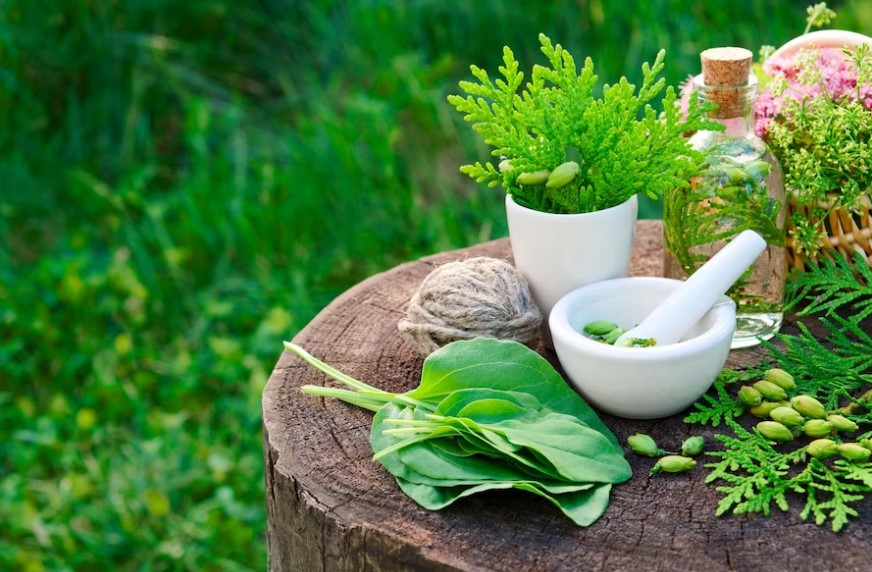







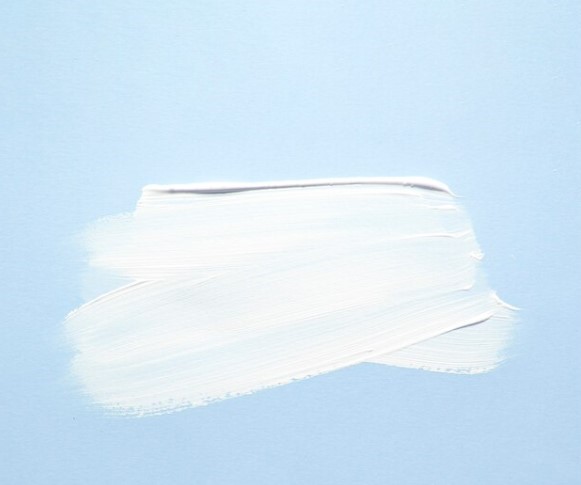
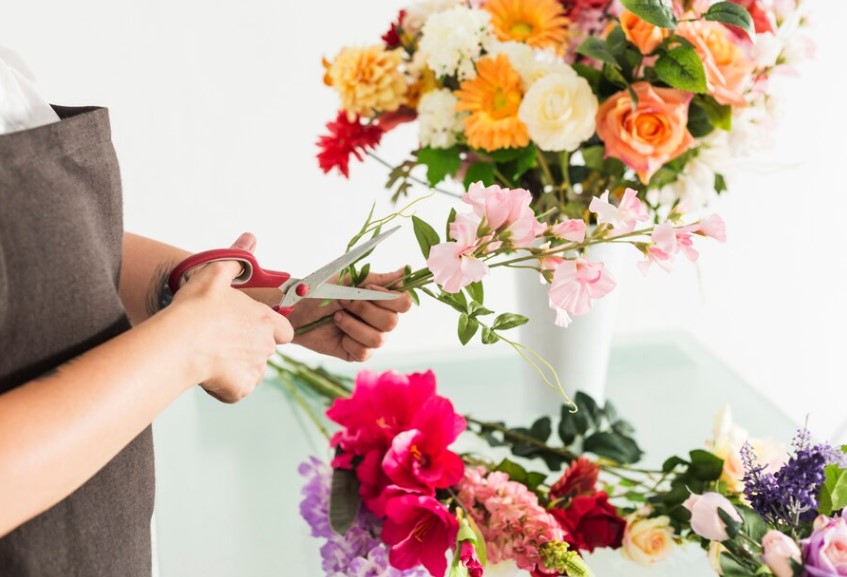
Leave a Review